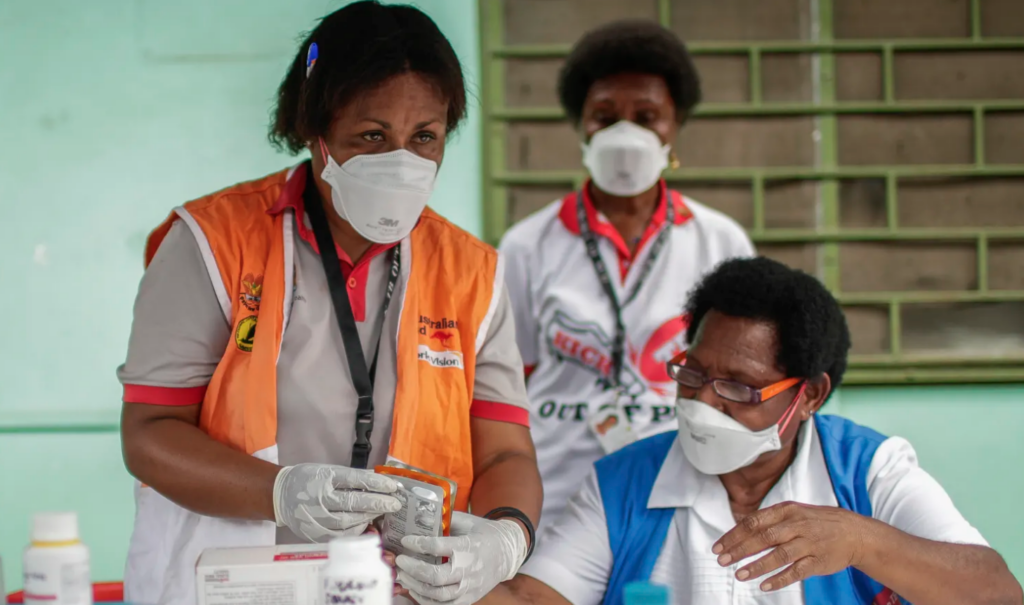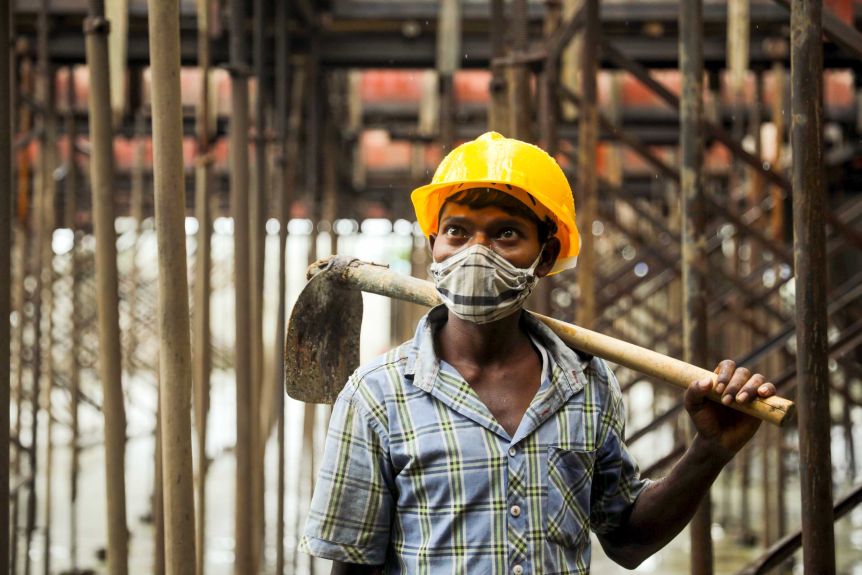A report released this week called the ‘Goalkeeper Report’, paints a devastating picture of what COVID has done to vulnerable nations and global progress on poverty across the world.
COVID-19 has been unlike anything else we’ve seen in our lifetime, it hasn’t represented just one crisis – it’s expounded to ‘crisis upon crisis’ across the globe.
In what felt link the blink of an eye a health disaster turned into an economic disaster, a food and nutrition disaster, a political disaster, a housing disaster and more.
While parts of the world start to return to some sort of ‘normal’, coronavirus continues to wreak havoc on poorer nations.
The the Goalkeeper report, published every year by the Gates Foundation, is an annual report card on the world’s progress toward the Sustainable Development Goals (SDGs).
The report sums up well the impact of COVID-19 on development:
“Mutually exacerbating catastrophes” is an apt description for the COVID-19 pandemic.”
Already in 2020, the pandemic has pushed almost 37 million people below the US$1.90 a day extreme poverty line.
Modelling by the World Bank back in June, showed COVID would push over 70 million people into extreme poverty, those figures set to look increased even more if the current trajectory continues.
COVID-19 has also set back progress on Global poverty almost 30 years.
According to the Goalkeeper Report, there have also been other devastating consequences:
- Vaccine coverage, which is a good proxy measure for how health systems are functioning, has been set back ‘about 25 years in about 25 weeks.’
- The poverty line for lower-middle-income countries is US$3.20 a day, and 68 million people have fallen below that one since last year.
- Infant mortality has also increased.

What’s been happening in our own Region?
India:
India is one of the biggest concerns right now when it comes to the acceleration of the virus.
The second-most populous country in the world, with 1.2 billion people, India is responsible for nearly a third of all new cases being reported at the moment.
After a slow start earlier in the year, when the country was in lockdown, India is reporting more new cases per day than we’ve seen before in one country.
The country’s cumulative tally to 4.75 million — second only to the United States.
Indonesia:
Indonesia’s curve has steepened substantially in the past few weeks, with the average number of new cases rising from about 2,000 per day to more than 3,500.
Indonesia now has over 230k cases.
The Pacific:
Due to the early closure of boarders the Pacific region has done relatively well with COVID case numbers. For example, PNG has only had a total of 516 cases.
The biggest impact for the region though has been on the economy due to lack of travel and tourism.
In the Pacific and Timor-Leste, the economic impact of COVID-19 could result in an additional 1.2 million people being pushed into extreme poverty.

Here are three areas where the poor in developing nations have been impacted:
1. Health:
There are no safety nets for those in extreme poverty.
So these Global ‘Health shocks’ like these present a compounded risk for the world’s poor.
Any health epidemic has a compounded effect because the basic safety nets and support systems we have in developed nations are just not available (or are stretched to breaking point) to them during a crisis.
The crisis has led to overstretched health systems and lack of access to essential services and medicines, here are some examples:
- When the virus first hit, it was reported that in Uganda, a pack of 50 disposable masks, once $2, now sells for $40.
- In north east Syria, where healthcare provision is already inadequate, only 3 out of the 279 public health centres are fully functional.
- In Mumbai, The overstretched medical system is leading to deaths that are not even attributed to the virus, doctors have said.
One of the biggest knock-on effects of the virus is that other health campaigns and interventions, including vaccines have been stalled or suspended because of the pandemic:
- World Bank: New data from Somalia, Mali, and Liberia shows there has been up to a 40 per cent reduction in essential health services such as childhood immunisation, antenatal care and safe childbirth.
- Vaccine coverage has been dangerously down in the past six months too, to levels not seen since the 1990’s.
- 80 million babies under a year old are at risk of missing routine immunisations due to COVID-19.
And the health impacts are felt most by women and children:
The Goalkeeper report states that:
“Indirectly, COVID will cause more women than men to suffer and die, in large part because the pandemic has disrupted health care before, during, and immediately after childbirth.”
Preventable, treatable complications such as severe bleeding, infection, and high blood pressure cause the vast majority of maternal deaths.
Many health care workers who used to manage these emergencies, including experienced nurse-midwives, are being diverted to COVID wards.
Models also forecast that acute malnutrition will increase dramatically, which will make it harder for children to fight off infectious diseases.

2. Loss of Income:
For many of us in developed nations it’s hard to understand the full implications of ‘lockdown’ for a person whose income relies on them literally working day-to-day.
While our government provided safety nets for those whose employment was impacted by COVID-19, the political and social landscape is not the same for many developing nations.
Put simply: Coronavirus has increased inequality between workers.
Lockdown policies enforced by many governments help with the spread of the virus have particularly hurt the working poor in developing countries.
For these workers, who depend on a daily wage and casual work, the inability to travel to their places of work has led to a significant loss of earnings, with no protection and high levels of insecurity about the future of their livelihoods.
There are many examples of this across nations such as India: a street vendor selling vegetables in the streets of Delhi, who decides to comply with government guidelines would suddenly find themselves out of a living.
In Africa, the earnings of informal workers declined more than 80 percent in the first month of the pandemic.

3. Economic impacts for Developing Nations:
While at first the concerns for vulnerable nations was focused around health systems and access to PPE, it quickly became clear that economies of nations would take probably the biggest hit since World War II.
The COVID-19 financial loss is twice as great as the “Great Recession” of 2008. The last time this many countries were in recession at once was in 1870, literally two lifetimes ago.
The world’s biggest developing countries are witnessing some of the steepest economic contractions on record, throwing tens of millions out of work and turning back the clock on gains against poverty.
And shockingly, the developing world faces a potential funding shortfall of nearly $2 trillion for its response to the COVID-19 Pandemic and related economic shocks.
Exposing Inequalities:
COVID-19 has exposed the inequalities across the world like nothing else before.
And the pandemic will continue to greatly heighten existing economic and social inequalities.
As WHO Director General, Dr Tedros Adhanom Ghebreyesus said recently:
“It has exploited the inequalities in our health systems and the schisms in our societies. It has exposed existing inequities, widening and deepening the cracks between us.”
This is why Micah has helped to lead and create the End COVID For All campaign.
We believe we need to encourage our government to provide vital support to vulnerable nations at this time.
Because, this doesn’t end for anyone until it ends for everyone.
You can support this campaign and sign the pledge here.
Main Image: Oxfam, Bangladesh.
<